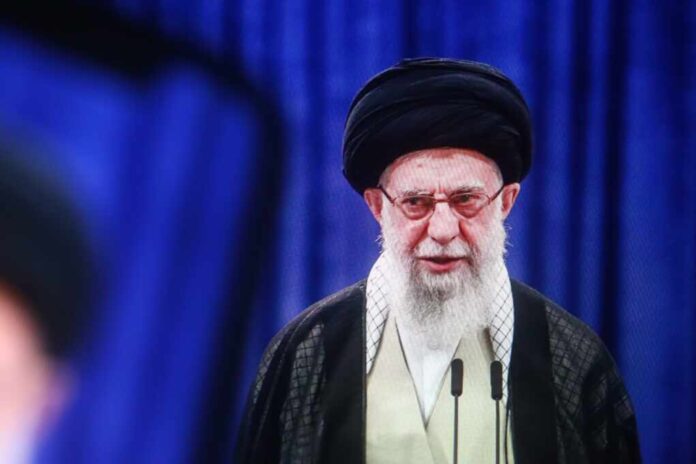
Why do Iran’s alliances with Russia and China consistently fall short of solid defense pacts?
At a Glance
- Israel’s Operation Rising Lion dismantled key military and infrastructure targets in Iran.
- The U.S. and Israel’s military campaigns question Iran’s reliability as an ally.
- China and Russia’s reaction to these strikes shows a focus on their own strategic interests.
- The lack of military support from Russia during recent conflicts highlights the frailty of the alliances.
- Both China and Russia hesitate to fully back Iran due to diverging economic and geopolitical priorities.
The Limits of Alliance
Israel’s Operation Rising Lion recently targeted Iran, attacking its warfighting infrastructure and undermining senior IRGC commanders. These attacks raise a crucial question: where were Iran’s supposed allies, Russia and China, during these crippling strikes? The United States, under President Trump, followed up with similar operations at nuclear sites, further questioning these alliances’ effectiveness.
Watch a report: China and Russia’s reaction to these strikes
The shared axis of Russia, China, and Iran purports to destabilize U.S. influence, especially in the Middle East. Yet, the coordinated military campaigns by the U.S. and Israel severely threatened Iran’s infrastructure and hindered its proxy networks. This scenario shattered Iran’s myth of divine protection and exposed its vulnerabilities as a partner. The silence from Moscow and Beijing during these strikes speaks volumes—both are clearly not willing to sacrifice their strategic interests for Tehran’s survival.
Read a report: Dr. Fundji Benedict on X: “Why is the Islamic Republic left alone?
Why is the Islamic Republic left alone? #Iran's Regional Alliance Network has collapsed.
Iran's traditional support system, known as the "Axis of Resistance," has systematically collapsed over the past year, leaving #Tehran without its customary regional allies to provide… pic.twitter.com/SnmVuR7jkp— Dr. Fundji Benedict (@Fundji3) June 19, 2025
Economic Considerations Override Defense
China’s actions reveal that their alliance with Iran is conditional. Although Iran provides significant energy resources crucial to the Belt and Road Initiative, these recent strikes on Iran signaled potential threats to China’s economic foothold and access to discounted oil. While Iran may be central to China’s Middle East strategy on paper, “Beijing is trying to stabilize relations with Washington to buy some time to further increase its tech and economic self-sufficiency. That’s more important than rebuilding the Iranian Air Force,” said Andrea Ghiselli. This strategic hedging shows that China’s solidarity has boundaries when its economic stability is jeopardized.
Russia’s approach is no different. The Kremlin relies on Iran for its drone capabilities and regional influence. However, when those capabilities faced dismantling due to Israeli strikes, Russia offered little more than rhetorical support. Putin’s refusal to sell crucial military equipment like the S-400 missile defense system underscores that these alliances are transactional. The so-called strategic partnership is more about geopolitics than genuine camaraderie. Putin is a cynical, opportunistic actor who thinks only of his strategic interests, and he will do so if he needs to sacrifice Iran. And of course, that feeling is reciprocated in Tehran as well.
Read a report: “Over the past two decades, the issue of Iran’s political isolation has frequently been discussed.
Over the past two decades, the issue of Iran's political isolation has frequently been discussed. At times, some have claimed Tehran enjoyed more support than Washington. In this moment of crisis, Tehran finds itself alone. Syria has fallen from Iran's orbit. Proxies which cost…
— Norman Roule (@Norman_Roule) June 17, 2025
The Future of Iran’s Geopolitical Role
Iran’s recent participation in the Shanghai Cooperation Organisation (SCO) summit underscores its desire to align more closely with China and Russia amidst U.S. tension. Xi Jinping remarked, “China supports Iran in safeguarding national sovereignty and resisting unilateralism and bullying.” Yet, these grand claims of support cannot mask the gap between rhetoric and action. While China enlarges its oil imports, hesitant in providing military ordnance, it essentially signals the importance of its diplomatic dance with the West over military commitments to Iran.
What remains crystal clear is that these alliances, although strategic in some spheres, lack the unified strength many perceive them to possess. As Sergei Radchenko identifies, “there is no common value… more important than the friendship between Russia and Iran.” While these three nations may share a fond dislike for Western influence, their separate ambitions leave Iran isolated at critical junctures. For Tehran, bridging the gap between external rhetoric and internal realities now appears as its defining geopolitical challenge.

























